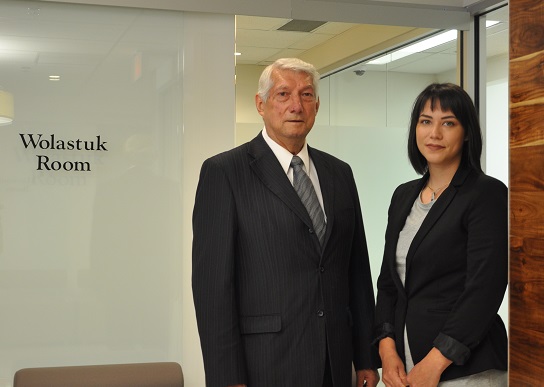There’s nothing like finding a possible early adopter to stoke the entrepreneurial fires, and right now Melissa Lunney seems stoked.
Lunney is the Founder and CEO of AppDigenous Development Inc., a young company whose technology opens doors automatically for people with disabilities. The one-year-old company has been working with the Aboriginal Business Accelerator Program offered by the Joint Economic Development Initiative, or JEDI, the Fredericton group that fosters economic growth for First Nations communities.
She was new to entrepreneurship when she joined the program in 2016, but now she is talking to the City of Fredericton about trying out Doorable (the name of AppDigenous’ product) in one or more of its buildings. It’s given fresh confidence to the entrepreneur, which was on display during an interview at the JEDI offices.
“At the beginning I had no idea what to expect and I relied on the guidance of others a lot,” said Lunney. “Working on this project, I’m learning more and more, and I feel like I’m absorbing lessons from people. I know more about the project than before and I know it’s what I want to do.”
As the name suggests, AppDigenous is developing an app, but the project is complicated by the fact that there’s hardware involved as well. Specifically, Lunney is working on a cell phone app that would help disabled people to open doors. Many entries in public spaces have doors that open when someone pushes a button on a wall; but the location of the button often forces someone in a wheelchair or with crutches to reverse or maneuver in an awkward way to get through the doors. Doorable is a smartphone app that automatically opens the door when the user approaches. As long as the phone is on and the app activated, the door will open whenever they get near it.
New Brunswick Unveils Innovation Funding
Lunney now has all the working parts to the device and needs to do a pilot project with it installed in a building. She has been working with engineers at RPC, a New Brunswick-based research and technology organization, who have produced the hardware that can receive signals and open the doors. And an aboriginal software engineer has built the app for Android. They still need to do an iOS version. “It’s been great because I get to work with another Indigenous entrepreneur,” she said.
As well as learning about tech entrepreneurship, Lunney said she has learned a lot about the challenges that disabled people face every day.
“I’m learning more about people living with disabilities,” she said. “Like when they go to a university, they don’t necessarily look for the best one in terms of academics – they look for the one with the most accessible buildings.”
She’s learned that disabled people always have their route to class or work predetermined because they need to know the path with the fewest obstacles. One of the features of the Doorable app will be a route-planner to help disabled people find accessible paths to their destinations.
Lunney is now focusing on getting the first installation and building her network. One thing that increases her confidence is there are no competitors working on a similar project to help people with disabilities.
“At first I had a hard time coming up with a business plan because I had no example to go off of,” she said. “Now it’s, Hey, no one else is doing this so all there is is me.”










